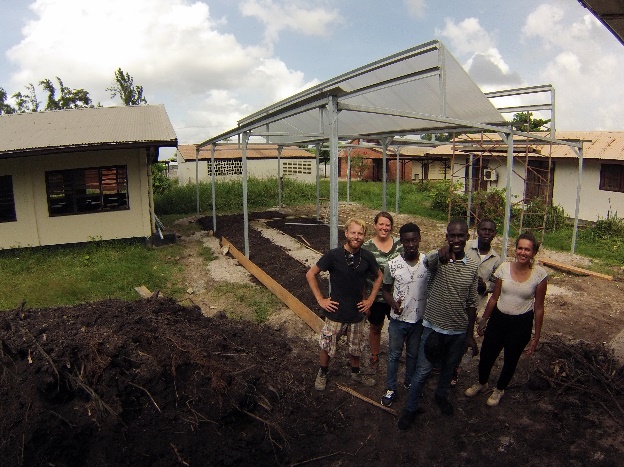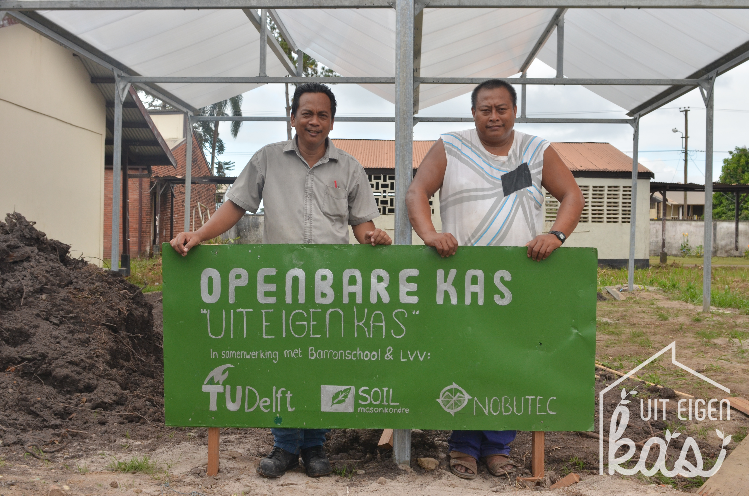Greenport Marowijne
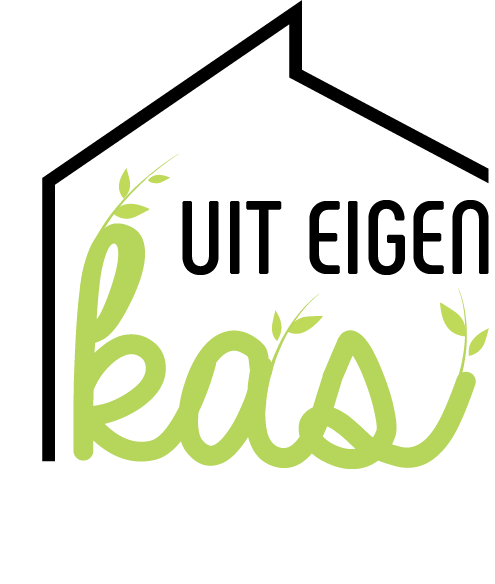
Greenport Marowijne
Minor International Entrepreneurship & Development 2017
Location
Marowijne, Suriname
Students
Kris Wijdeveld
Chris Hoekman
Joep Bastiaans
External Links
The mission statement of our project can be understood from the title: we want to make Marowijne a region in which farming ensures the employment and the food production all year round. Within 10 years, Marowijne shouldn’t be importing crops anymore, but become exporter of a diverse range of crops: Greenport Marowijne. In this short publication can be found how we want to achieve this goal with our 3 months project.
The problem
After the Alcoa mines were shut down, the local employment, economy and prosperity shrank. Combined with the hyperinflation in Suriname, the local residents have to find a new way of living. For young people, farming is seen as an old-fashioned profession.
Our solution: Irrigation & Education
By starting an educational programme at the local Barronschool, young people will be taught what farming is like and how to make a living from it. By building a metal greenhouse on the school, pupils can learn farming by doing: they won’t only gain agricultural knowledge, but also entrepreneurial skills.
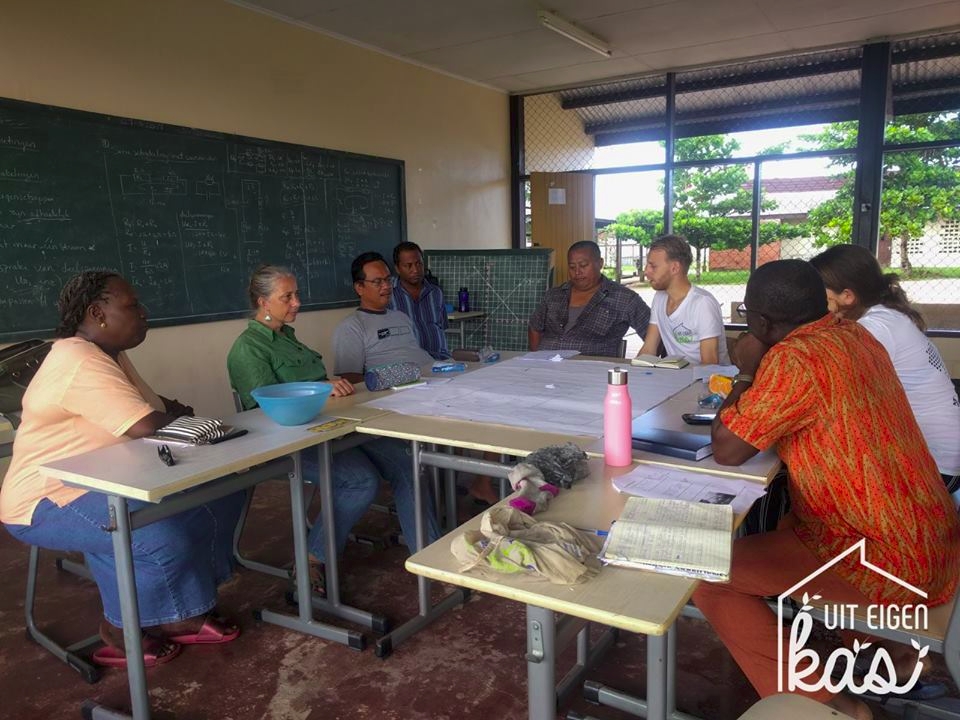
On the other hand we will do research after the problems and wishes concerning irrigation as it is unknown what the current situation is. Eventually we want to design a prototype for our metal greenhouse with the knowdledge we gained during our research.
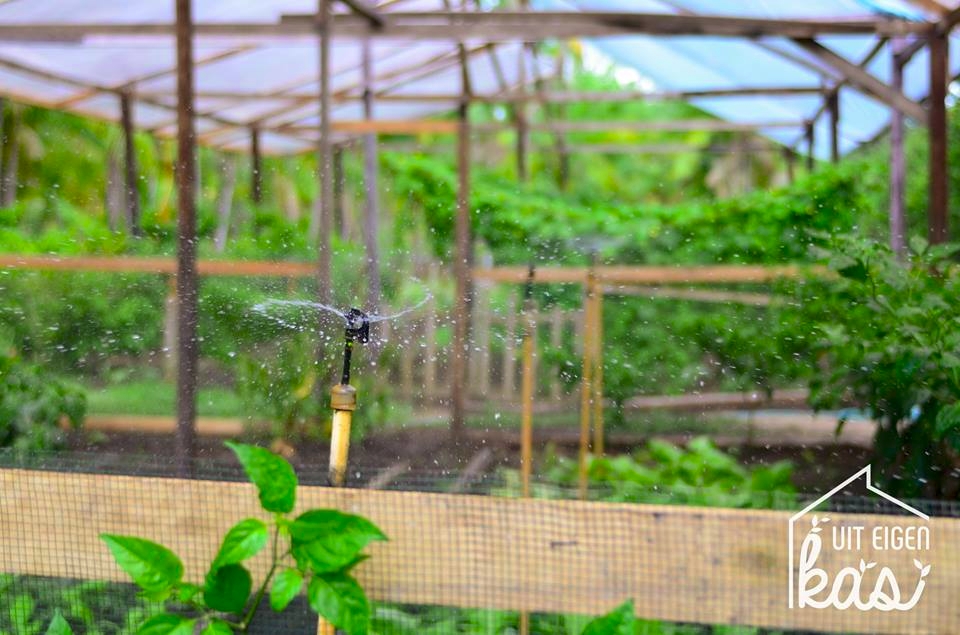
Organisation
We work together with group 16 to achieve our mission statement. Therefore, we have made a task division as follows:
Anne Chairman
Kris External affairs
Chris Financial manager
Joep Media
Paul Representative TU Delft
Valerie Project manager
After three months…
After three months, we want to have achieved: A start for an educational programme; A prototype for a better irrigation system; Constructed the metal greenhouse for education; Presented the educational programme, the system and the greenhouse on the Agri & Food fair 2018.
Evaluation
In the previous publications we stated the ongoing problems and described the scope and goals of our project. Now we can look back at a very intensive and educational three-month period, in which we delivered a very successful project and some proud local parties.
Results
With the help of a working group of teachers, we prepared the arrival of the metal greenhouse as well as we could. Their different expertise and connections were very useful and when they led us to a class that was perfectly fitting for helping with the construction, we were ready. In cooperation with them and men from the Ministry of Agriculture we built a greenhouse that’s ready for use.
The actual use only needs some boundary conditions, of which we think we delivered them. A teacher for the newly initiated ‘Agrarian Production’ curriculum was found and she will start this month.
Furthermore, the first workshops have been given to two classes of primary school students. The other planned workshops for adults were called off due to a shortage of subscriptions, but with a group of new enthusiastic trainees it will be organized next month by the local department of the Ministry of Agriculture. In order to continue with the use of this ‘public’ greenhouse, we made future plans together with our partners in Moengo.
On the 18th of January the Agri and Food fair was organized, which was an excellent opportunity for us to present and promote our project. We made people enthusiastic for a career in agriculture by organizing three excursions to working greenhouses, a competition, a scavenger hunt for kids and some workshops. Consequently, kids and adults have become familiar with the advantages of greenhouse farming.
Lastly, we set all the boundary conditions on the Barronschool for the fabrication of a good irrigation system. We bought all the materials and placed a concrete foundation for a large water tank. We could not finish this task completely, but we are certain it will finish, since we brought our project to an end decently.
Continuation
As said, some minor tasks in the completion of the greenhouse still have to be done. We transferred these tasks to the most reliable teachers in our working group and they will start working on it with their students, while also giving them a more practical course, leaving us with a win-win-scenario. This working group is also informed with the arrival of the new teacher and she has all their contact details. So whenever she needs help, she will be able to either contact us or call in a meeting with that group to give advice. When the Ministry of Agriculture will give additional workshops and SOIL will monitor if the greenhouse is still being used, we think the development of the project will continue and a difference is being made.
